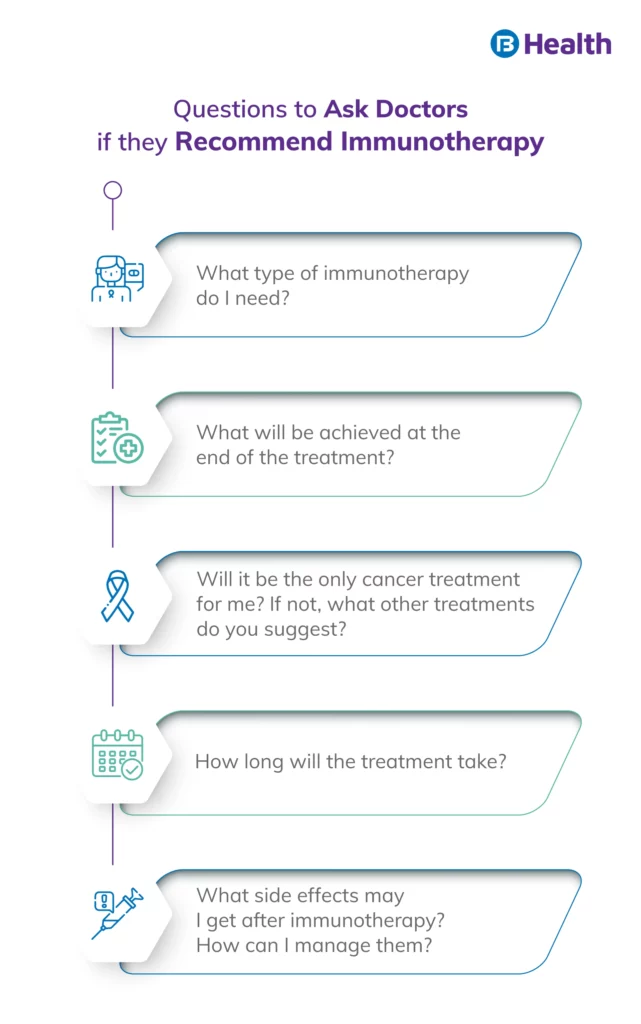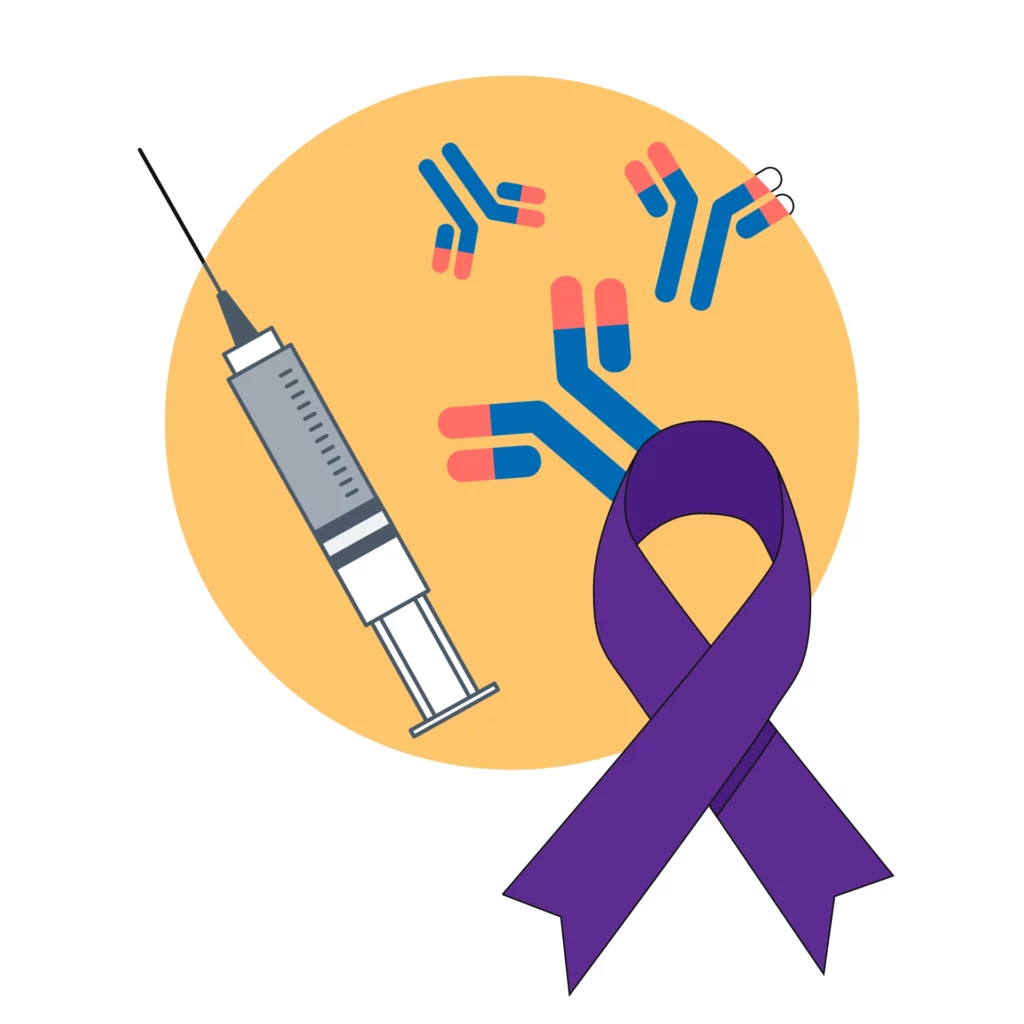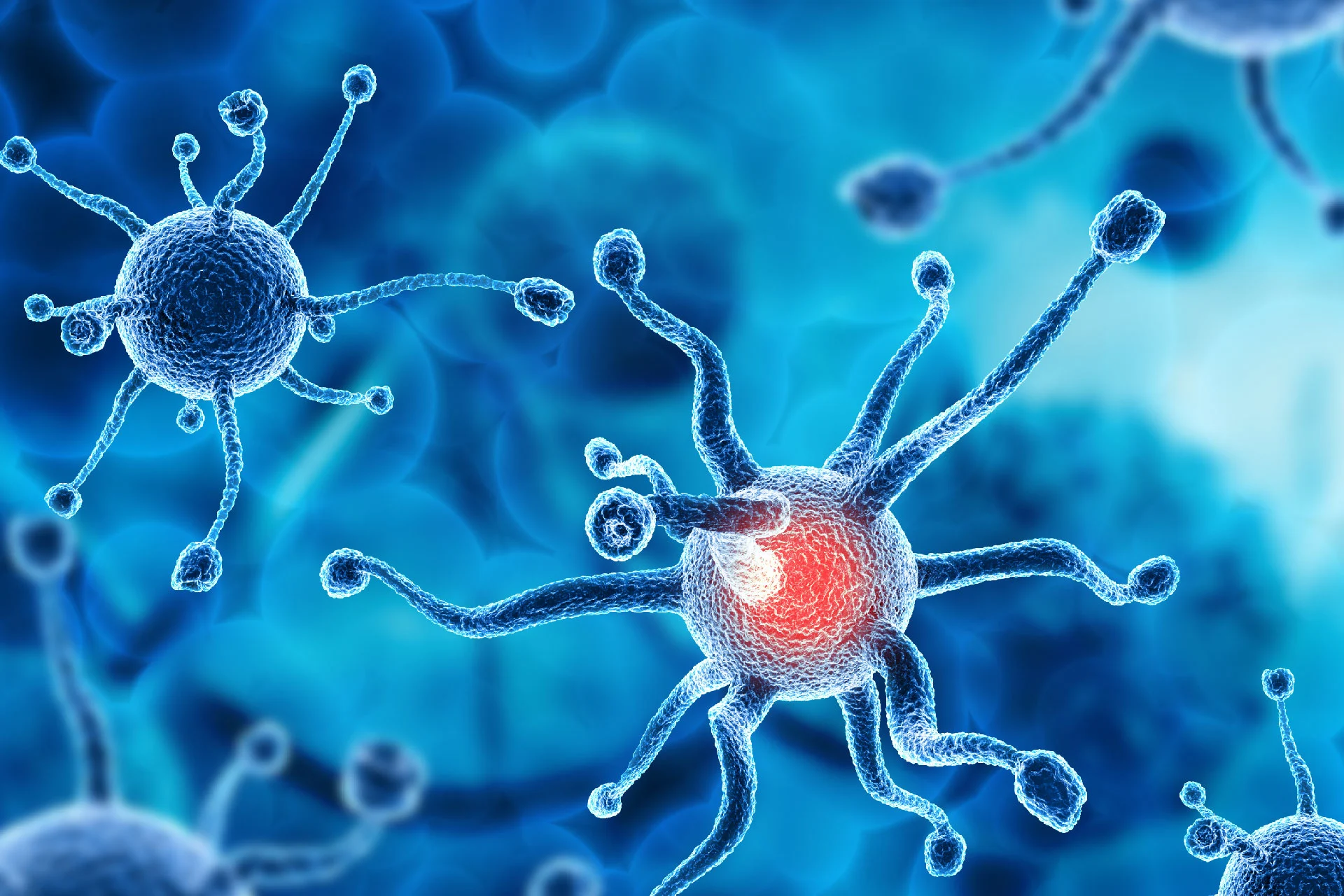Cancer | 5 min read
Immunotherapy: Means, Benefits, Side Effects, Type
Medically reviewed by
Table of Content
Synopsis
Immunotherapy is one of the safest and most comprehensive cancer treatment methods. Discover A to Z about immunotherapy, including its types, benefits, side effects, and more.
Key Takeaways
- Immunotherapy does not inject any chemicals into your system
- It activates your immune system, which attacks the cancer cells
- Latest research in India may make immunotherapy more affordable
When it comes to the treatment of cancer, immunotherapy is one of the ways doctors can recommend, apart from surgery, chemotherapy and other cancer treatments.
Though it is not as frequent as chemotherapy, it is indeed a comprehensive treatment process to stop or slow down the spread of cancer.
Read on to learn about immunotherapy, its types, and how it can help to fight cancer.
What is Immunotherapy?
Immunotherapy means boosting the body’s immune system with certain triggers. It is a treatment method to reduce and control cancer.
Immunotherapy cancer treatment aims to locate and destroy cancer cells in your body. Often given in combination with chemotherapy or other cancer treatments, immunotherapy can help treat different types of cancer.

Types of Immunotherapy
The purpose of immunotherapy is to boost the body’s immune system so that it becomes active and starts attacking cancer cells. There are different types of immunotherapies, each with advantages and risks.
Doctors will recommend one for you depending on your cancer type and the stage of cancer you are in. Here’s a look at them:
Monoclonal antibodies:
Also known as therapeutic antibodies, these are synthesised in labs and then injected into your body. Some antibodies locate the cancer cells to help the immune system destroy them. Others directly affect cancer cells, halting their development or forcing them to self-destruct.
Checkpoint inhibitors:
Usually, your cancer cells send false signals to your brain, posing as healthy cells and thus deceiving your immune system. Through checkpoint inhibitors, doctors can successfully disrupt the function of these cells, which activates your immune system.
Cancer vaccines:
In this type of immunotherapy, the vaccines may directly attack the viruses responsible for cancer. In some cases, it may trigger the immune system to destroy cancer cells in specific areas of the body.
Cytokines:
These are protein molecules which help monitor and stimulate the immune system. As part of immunotherapy, these proteins are produced in labs and injected into the body. Note that the doses of cytokine injection are much larger than the quantity of the protein produced naturally in your body.
CAT T-cell therapy:
This type of immunotherapy is also known as immune cell therapy, adoptive immunotherapy, or adoptive cell therapy. It is all about collecting white blood cells from the malignant cells, changing them to increase their strength to fight cancer, and injecting them back into your tumours. These cells are developed in labs in large batches.
Immune system modulators:
Also referred to as immunomodulators, these are drugs that spike the body’s immune reaction. Some immunomodulators work on certain parts of the immune system, while others provide 360° support.
It can be provided in different forms, such as injections, pills, capsules, and topical medication. Also, remember that doctors may either recommend immunotherapy as a single mode of treatment or use it with a combination of other therapies to spark your immune system.
- Chemotherapy
- Targeted therapy
- Radiation therapy
- Surgery
What are the common drugs used in Immunotherapy?
Here are the common checkpoint inhibitors used to treat cancer:
- Atezolizumab
- Nivolumab
- Pembrolizumab
- Ipilimumab
The following are the common cytokines used as part of immunotherapy:
- Interferons-alpha (IFN-alpha)
- Interleukin-2 (IL-2)
Research is on to develop new immunotherapy drugs. For example, a recent study in India has discovered an ultra-low dose of nivolumab, which is expected to reduce the expenses for cancer treatment [1].
What are the side effects of Immunotherapy?
It may lead to several side effects, such as:
- Fever or chills
- Weakness
- Fatigue
- Diarrhea
- Nausea and vomiting
- Rash
- Headaches
- Hypertension
- Oedema or build-up of fluid
- Sores in the mouth
- Pain
Do note that the side effects usually reduce with the proceedings of immunotherapy. The team of doctors looking after you will also provide you with comprehensive care that includes oncology rehabilitation, pain management, naturopathic support, nutritional support, and behavioural and mental health support.
This integrated care may lower the side effects and enhance your overall well-being.
Additional Read: Types of cancer
Differences Between Immunotherapy and Chemotherapy
The broad purpose of immunotherapy and chemotherapy is the same as the drugs used in both either halt or slow down the spread of cancer cells. However, while chemotherapy drugs take direct action by attacking cancer cells, immunotherapy boosts the function of the immune system to locate and destroy malignant cells.
The side effects of these two types of cancer treatments are also different. Chemotherapy cannot understand the difference between fast-growing normal cells with quickly spreading cancerous cells and ends up affecting non-cancerous cells like those responsible for the growth of your hair and skin, as well as the ones in your bone marrow or lining of the digestive tract.
As a result, it leads to side effects such as hair loss, vomiting and nausea, which are much different from that of immunotherapy.
What are the benefits of Immunotherapy?
Though immunotherapies are less frequent than other cancer therapies, such as chemotherapies and surgery, it is still a crucial treatment method for certain cancers. Also, it is a more integrated and less toxic treatment option when compared to the others.
Without pushing chemicals inside the body, this therapy leverages your body's power by activating the immune system to destroy the tumour cells.
As one of the most developing areas of cancer treatment, research is going on for new types of immunotherapy.
What are the risks of Immunotherapy?
As mentioned above, immunotherapy can lead to side effects such as fever, chills, fatigue, nausea, vomiting, o edema, headache, rash, weakness, and more.
Doctors may recommend steroids to treat these side effects, but steroids also have side effects of their own. In addition, some people may grow resistant to immunotherapy. In rare cases, doctors have observed severe or even fatal inflammatory and allergic reactions to immunotherapy.
Remember, immunotherapy may or may not work for you. However, research is on to understand the factors determining immunotherapy's applicability to a person.
With all this knowledge about immunotherapy definition and applications, deciding on it becomes more convenient. However, do consult with a cancer specialist for the best recommendations about cancer treatment. You can book an online appointment on Bajaj Finserv Health for a quick oncologist consultation.
With a timely initiative, you can effectively reduce cancer symptoms and lead a better and healthier life!
References
- https://www.cancer.gov/news-events/cancer-currents-blog/2022/cancer-immunotherapy-low-dose
Disclaimer
Please note that this article is solely meant for informational purposes and Bajaj Finserv Health Limited (“BFHL”) does not shoulder any responsibility of the views/advice/information expressed/given by the writer/reviewer/originator. This article should not be considered as a substitute for any medical advice, diagnosis or treatment. Always consult with your trusted physician/qualified healthcare professional to evaluate your medical condition. The above article has been reviewed by a qualified doctor and BFHL is not responsible for any damages for any information or services provided by any third party.





